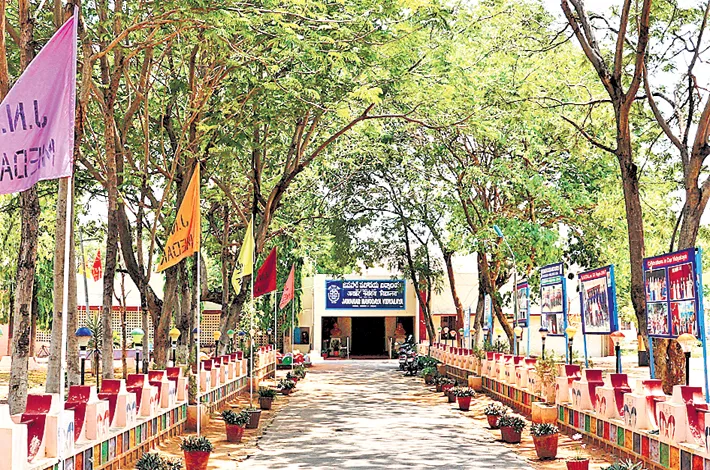TG and AP continue to face gaps in Jawahar Navodaya Vidyalaya coverage
27-08-2025 12:00:00 AM

■ Telangana JNV Coverage: Existing 9 JNVs in Karimnagar, Kumuram Bheem Asifabad, Nagarkurnool, Nalgonda, Kamareddy, Warangal, Ranga Reddy, Siddipet, Khammam
■ Newly Sanctioned 7 JNVs (in Dec 2024): Bhadradri Kothagudem, Jagtial, Mahabubnagar, Medchal–Malkajgiri, Nizamabad, Sangareddy, Suryapet
MAHESH AVADHUTHA | Hyderabad
Telangana continues to hold the unenviable record of being the state with the highest number of districts without a Jawahar Navodaya Vidyalaya (JNV). Despite the central government’s ongoing expansion efforts, 16 of its 33 districts still lack these premier residential schools meant to deliver quality education to rural students. Andhra Pradesh follows closely, with 13 of its 26 districts uncovered. This highlights a major southern education gap that risks denying thousands of rural children, especially those from SC/ST and remote backgrounds, access to transformative schooling opportunities.
The JNV scheme, launched under the National Policy on Education in 1986 by then Prime Minister Rajiv Gandhi, aims to set up at least one fully residential, co-educational school in each district to nurture rural talent. These schools provide free modern education, boarding, lodging, and holistic development through academics, culture, sports, and leadership programs. Admissions are merit-based via the Jawahar Navodaya Vidyalaya Selection Test (JNVST), with 75% of seats reserved for rural children and proportional quotas for SC/ST communities.
Nationwide, as of January 1, 2025, 689 JNVs have been sanctioned, covering 666 districts, including 23 additional institutions beyond the one-per-district norm. However, 70 districts remain outside the network, excluding Tamil Nadu, which opted out of the scheme. While states like Uttar Pradesh, Bihar, Gujarat, and Karnataka have achieved full coverage, southern states, particularly Telangana and Andhra Pradesh, continue to struggle due to slow land allotment and coordination issues.
Half of Telangana still uncovered
Until recently, Telangana had just nine JNVs. In December 2024, after nearly nine years of persistent requests following the 2016 district reorganization, the Centre sanctioned seven additional schools. With this, the state’s total stands at 16 JNVs across 32 eligible districts (Hyderabad being excluded). The newly sanctioned JNVs are expected to start classes in July 2025, marking a significant but partial success as another 16 districts remain underserved.
Andhra Pradesh also lags behind
Andhra Pradesh currently has 15 JNVs. This leaves 13 districts without coverage, further deepening the educational divide. Together, Telangana and Andhra account for nearly 41% of uncovered districts nationwide, signaling the urgent need for state-level commitment to land allocation and proactive partnership with the Centre.
JNV Alumni making their mark
The Navodaya system’s impact can be seen in the achievements of its alumni across diverse fields. Prominent names include athlete Hima Das, international sportsman and Limca record holder Surendra Poonia, Kannada filmmaker Abhilash Shetty, footballer C.K. Vineeth, scientist Sasikanth Manipatruni, and Araku MP Goddeti Madavi. Others have excelled in politics, acting, the armed forces, and media, showcasing the schools’ success in nurturing rural talent for national leadership and innovation.








